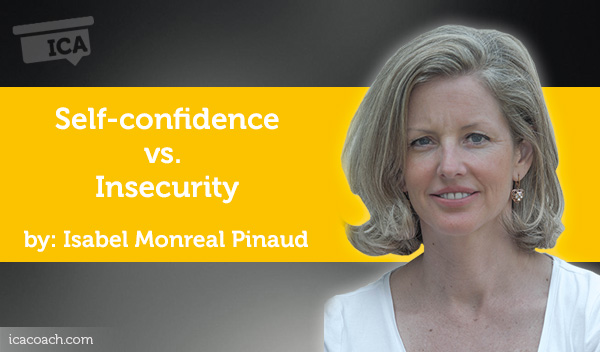
A Coaching Power Tool Created by Isabel Monreal Pinaud
(Life and Career Coach for Students, CHINA)
Gaining self-confidence and boosting self-esteem is an important tool needed in life and certainly very precious for high school and college students, my target audience. They are at an age where they are asked to become independent, responsible, make lots of changes to their life and take important decisions.
Anxiety and insecurity are often a root cause of procrastination among students, as they think about all that will go wrong if they try to take action. It is a self-defensive behavior which stops them from moving forward. Low levels of self-esteem and confidence can seriously hold people back and stop them from achieving what they want in life, it is a major reason for failure during studies in high school and college.
Three main causes of insecurity seen among youth are:
-
Experience and failure:
Events in their lives and things that people have said can greatly affect how they feel about themselves and lead to insecurity. Sometimes just one word spoken during childhood or adolescence can have a huge negative impact on their confidence. Critical or over demanding parents and teachers can lead to self-doubt, and just one failure or bad grade can negatively affect their self-confidence. It is important to remind the student that failure is part of success. Failure does not characterize you as a person or determine your self-worth.
-
Social anxiety:
Lack of confidence in social situations like interviews, parties, family gatherings are frequent among young people. The fear of being evaluated by others can lead them to feel self-conscious. Being bullied or excluded from a group of friends during middle school or high school can also negatively affect teens and young adults. This is also often the reason for alcohol and drug consumption among young people who think that it will help them gain confidence in a social setting and have fun. This type of insecurity is based on distorted beliefs about your self-worth and about the extent to which people are evaluating you.
-
Perfectionism:
Often perfectionists are people afraid of making a mistake or showing others that they are not certain of what they are doing. If we make an error everyone will know our secret. But no one can possibly know everything at all times or is expected to. Perfectionists tend to ignore their greatness and just see their flaws and imperfections. One type of perfectionism causes you to believe that others have very high expectations and you always feel like a disappointment. Sometimes students with unrealistically high standards quit before they really get started. They never learn a particular skill because they are not good at it from the beginning, because others are better at it than them. They hate being at the beginner level. If they never finish what they have started they miss the self confidence boost associated with achieving a goal or completing a task.
Coaching application:
Insecurity is often a reason that people turn to coaches for help. The coach must help the student shift his/her perspective from insecurity to self-confidence. The coach must help the student:
Self-confidence is the most attractive quality a person can have. How can anyone see how awesome you are if you can’t see it yourself? Ritu Ghatourey
Bibliography:
Melanie Greenberg, PhD. The Mindful Self-Express
Helen Whitten. Cognitive Behavioural Coaching Techniques for Dummies
Kate Burton. Coaching with NLP for Dummies
Byron Katie. Loving what is.
Rosamund Stone Zander and Benjamin Zander, The art of possibility